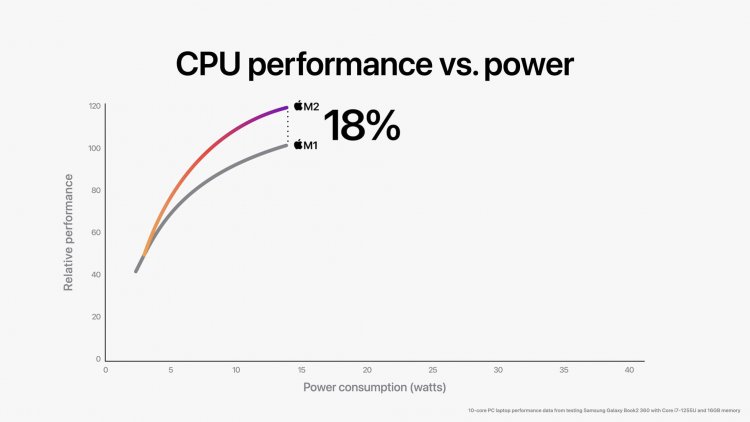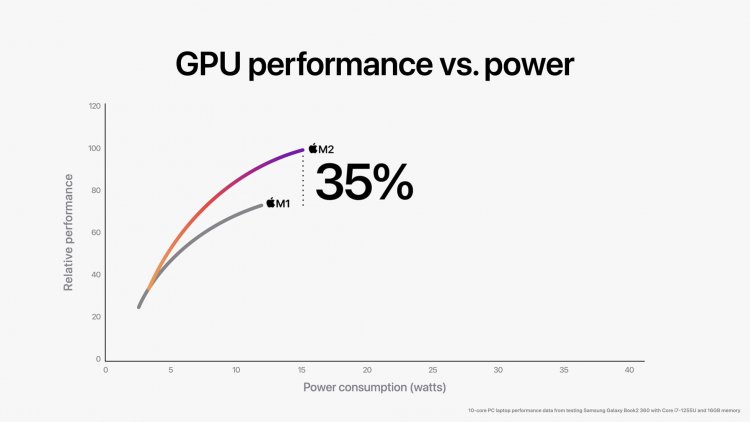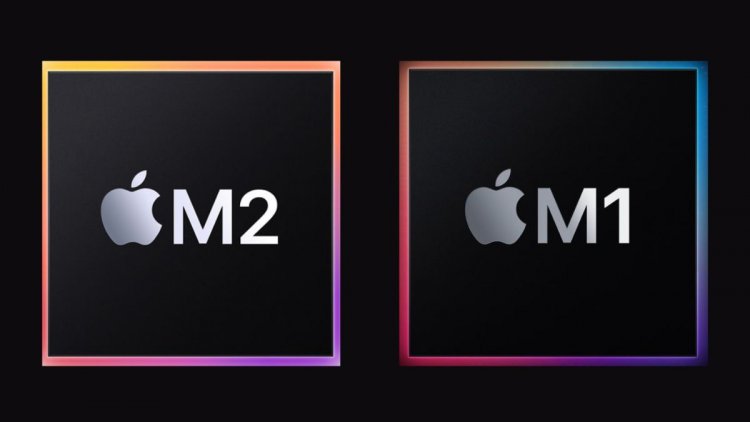Apple M2 vs Apple M1: What's the Difference in CPU, GPU, Performance, and Other Features?
The new Apple M2 outperforms its predecessor, the Apple M1. Here are all the differences between the Apple M2 and the Apple M1.

During the Worldwide Developer Conference, Apple finally unveiled its second-generation Apple Silicon, M2 chip (WWDC 2022). The company's latest silicon offers a plethora of features and sits comfortably between the Apple M1 and Apple M1 Pro chipsets. The original M1 chipset was launched in November 2020, and since then, Apple has released new silicons, including the M1 Pro and M1 Max in 2021, and the M1 Ultra in 2022. With the Apple M2, the company promises to deliver significant improvements over its predecessor.
But how much of a difference is there between the Apple M2 and the Apple M1? To answer this question, we decided to pit both chipsets against each other to see what actual improvements the Cupertino-based company is making.
Also Read: Apple to Give First Look at iOS 16 at WWDC 2022, Expected New Features
Apple M2 vs Apple M1: CPU
Both Apple silicons are made using the same manufacturing process. The Apple M1 and M2 are manufactured using a 5nm fabrication process. The Apple M2, on the other hand, is built on the company's second-generation 5nm technology. Furthermore, the company has increased the number of transistors from 16 billion in Apple M1 to 20 billion in M2, which it claims will provide better performance than Apple's first-generation silicon.

The Apple M2 has an eight-core CPU with four high-performance cores and four high-efficiency cores, just like the Apple M1. However, the company claims that the M2's cores are paired with a larger cache, which will provide 18% better-multithreaded performance than the M1.
Also Read: Apple M2 Chip with 18% Faster CPU and 35% Faster GPU to...
Apple M2 vs Apple M1: GPU

With the Apple M2 chipset, Apple has made some incremental improvements to the GPU. The latest silicon now has a 10-core GPU, which is an improvement over the 8-core GPU found in the Apple M1. As a result, the Apple M2 will deliver up to 25% better graphics performance than the M1 at the same power level, and up to 35% better performance at full power.
Apple M2 vs Apple M1: Performance
Apple M2 is a significant upgrade over its predecessor. The Cupertino-based company's latest chipset features Unified memory of up to 24GB and bandwidth of 100Gbps. In comparison, the Apple M1 has a bandwidth of 68.256Gbps and supports up to 16GB of unified memory. Unified memory, for those who are unaware, is a unique feature of Apple silicon that is accessible to the entire chip for improved performance. Furthermore, the LPDDR5 interface has been added, which is an improvement over the LPDDR4X interface found in the Apple M1.
Also Read: Apple Launches New MacBook Air With Refresh Design, M2...
Moving on, the Apple M2 now supports ProRes, thanks to an updated Media Engine. The chipset also supports 8K H.264 and HEVC videos, as well as a 6K external display, which is also found in the Apple M1.

The Apple M2 also has a more powerful Neural Engine than the M1. On the M2, the company has included a 16-core Neural Engine capable of performing up to 15.8 trillion operations per second. In comparison, the Apple M1 has a 16-core Neural Engine but can only perform 11 trillion operations per second. This simply means that the Apple M2 has a 40% faster Neural Engine than the M1.
The chipset also includes a next-generation Secure Enclave, which adds an additional layer of security to the MacBook Air and MacBook Pro. Finally, the Apple M2 includes a new image signal processor (ISP) that provides better image noise reduction than the M1.
Also Read: iOS 16 has been Announced: Which iPhones to Get New Update,...
Apple M2 vs Apple M1: What’s the Difference?
To conclude, the Apple M2 chipset offers some significant improvements over the Apple M1 chipset, though nothing groundbreaking. The company has introduced a similar core architecture, but you still get better CPU performance, an improved GPU, and other incremental improvements that make it the right successor to the most popular M1 chipset.
Furthermore, the company is emphasising efficiency at this time. Simply put, when compared to the world's Intels and AMDs, the new Apple M2 will provide longer battery life and unparalleled performance. That being said, it is too early to predict Apple M2 performance, and we may have to wait some time to see the actual difference in performance between Apple M2 and Apple M1.
What are your thoughts on Apple's new M2 chipset? Please share your thoughts in the comments.

 Mike2051
Mike2051 








